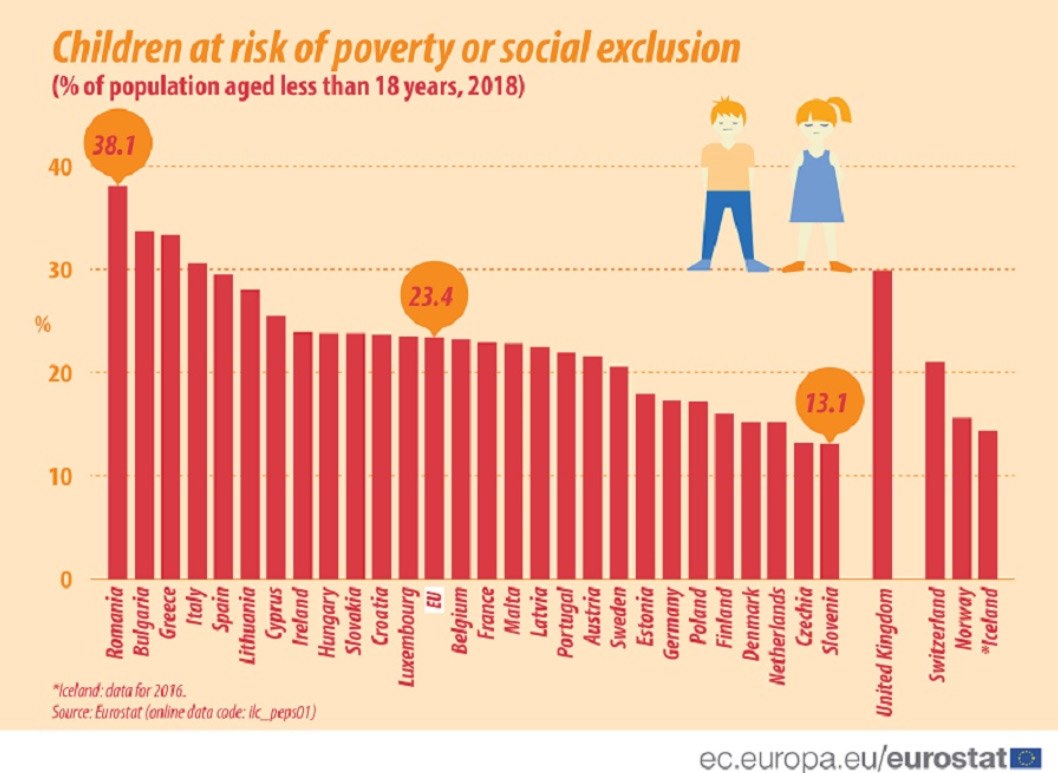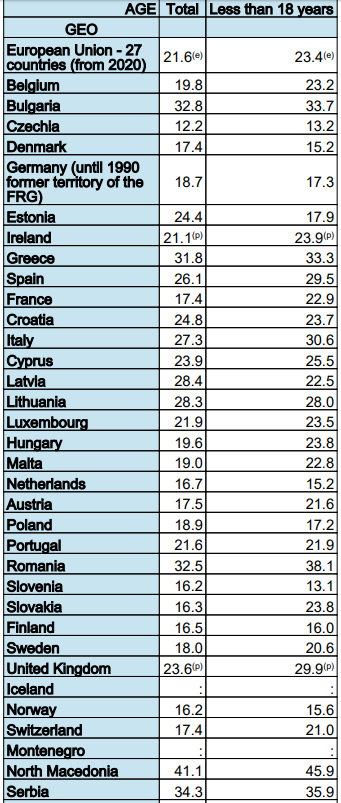Finland has one of the lowest EU rates for children at risk of poverty. In fact, the Finnish rate is seven percentage points below the EU average and 22 points below the highest.

Image: Eurostat.
According to the latest comparative data released by the statistics office of the EU (Eurostat), in 2018, 23.4% of children in the EU27 were at risk of poverty or social exclusion.

This rate is even higher compared with the average 22.1% of adults (18-64 years-old) and 18.4% of the elderly (65 years-old or over).
For the EU, being at risk of poverty or social exclusion means to be in at least one of the following three conditions: at risk of poverty after social transfers (income poverty), severely materially deprived or living in households with very low work intensity.
The most worrying thing is that nowadays Children were the age group with the highest risk of suffering poverty or social exclusion in nearly half of the EU member states, with rates ranging from 13.1% in Slovenia and 13.2% in Czechia to 33.7% in Bulgaria and 38.1% in Romania.
The situation in Finland
In Finland, the rate of children at risk of poverty is 16%, according to figures published by Eurostat.
Finland has gained international fame for being one of the best countries in the world to have a family and for the support families receive from the Government, in the form of money or in kind, for example with the worldwide known maternity package.
In the rest of the EU, the largest differences between the at risk of poverty or social exclusion rates of children and the total population were found in France, Romania and Slovakia at more than 5 percentage points higher for children than for the total population.
At the other end, the rates for children were below those of the total population, with more than 5 percentage points in Latvia (–5.9) and Estonia (–6.5).
In Finland, the difference between both groups is just 0.5 percentage points.











